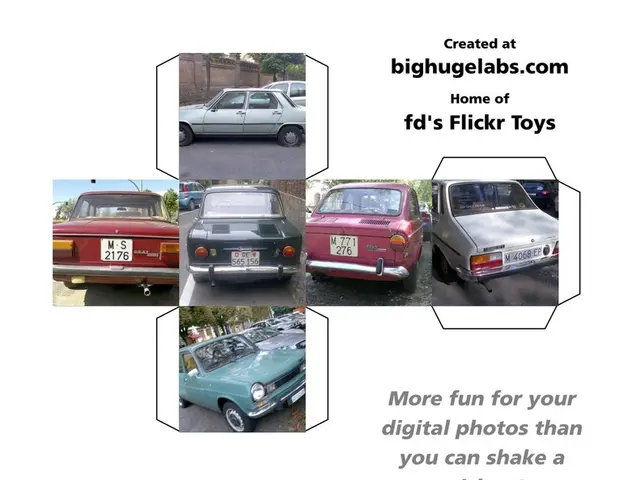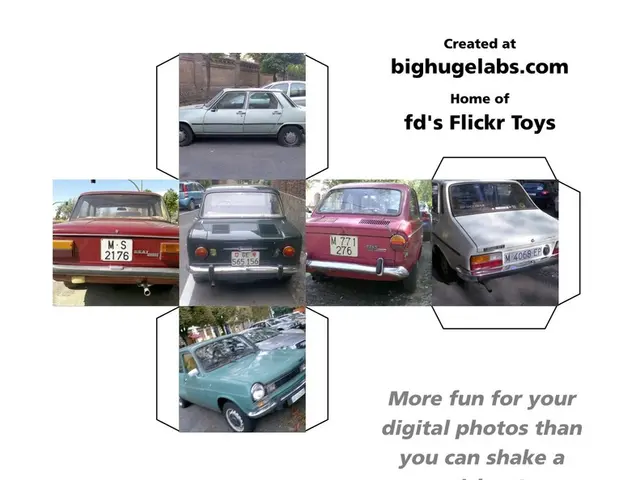Government refrains from powering hybrid service vehicles with electric power sources.
German Federal Ministries' Hybrid Vehicle Usage Leans Towards Fossil Fuels
BERLIN - Reports from the Funke media group's Friday editions reveal that the German government's hybrid vehicles, primarily used by various ministries, are not reliant on their electric motor, with only three ministries utilizing electricity mostly. According to a response from the Federal Ministry of Transport to the Greens' query, the Federal Ministry of Economics uses electric driving the least, at 25.37 percent, followed by the Federal Ministry of Transport at 33.6 percent. In contrast, the Federal Ministry of Food and Agriculture drives its hybrid vehicle's electric motor most frequently, at 80 to 85 percent, with the Federal Ministry for the Environment at 50 to 70 percent and the Federal Ministry of Labour estimating an average share of 75 percent.
Almost half of the Chancellery and federal ministries' fleet, comprising 339 vehicles, are electric vehicles. Of the total 171 electric cars, 122 vehicles (73 percent) are plug-in hybrids. However, records of the driving shares for the Chancellery, the Federal Ministries of Health, Finance, Family, Research, or the Interior are unavailable. Green transport politician Cem Özdemir criticizes the Federal Ministries of Transport and Economics for not leading by example, stating, "Instead of setting a good example, they are at the bottom of the list in terms of the proportion of electrically driven kilometers."
Özdemir emphasizes that hybrid vehicles can only be considered climate-friendly if there are incentives and regulations compelling users to use the electric motor predominantly. He denounces this as "state-subsidized climate fraud" and advocates for grants only when a significant portion of driving performance is proven to be electrically powered.
In Germany, federal ministries encourage electric driving of hybrid vehicles through purchase incentives, tax benefits, and regulatory measures aimed at promoting electromobility and reducing emissions. These measures include raising tax relief limits for company cars, offering accelerated depreciation for electric vehicles, and motor vehicle tax exemptions until 2035. Additionally, infrastructure investments support the charging infrastructure needed for electric mobility.
However, the impact of these measures on actual electric driving frequencies within hybrid vehicles remains a concern. Green political discussions seek further regulations to ensure federal ministries maximize the electric range usage of their hybrid fleets, aligning with broader climate goals.
The German Federal Ministry of Health and Finance have yet to release the statistical data on the usage of their hybrid vehicles' electric motor, like their counterparts in the transport, economics, and labor sectors. Despite Germany's initiatives encouraging electric driving in hybrid vehicles to combat climate change, concerns persist about the actual utilization of electric power within hybrid fleets, especially within the federal ministries.








